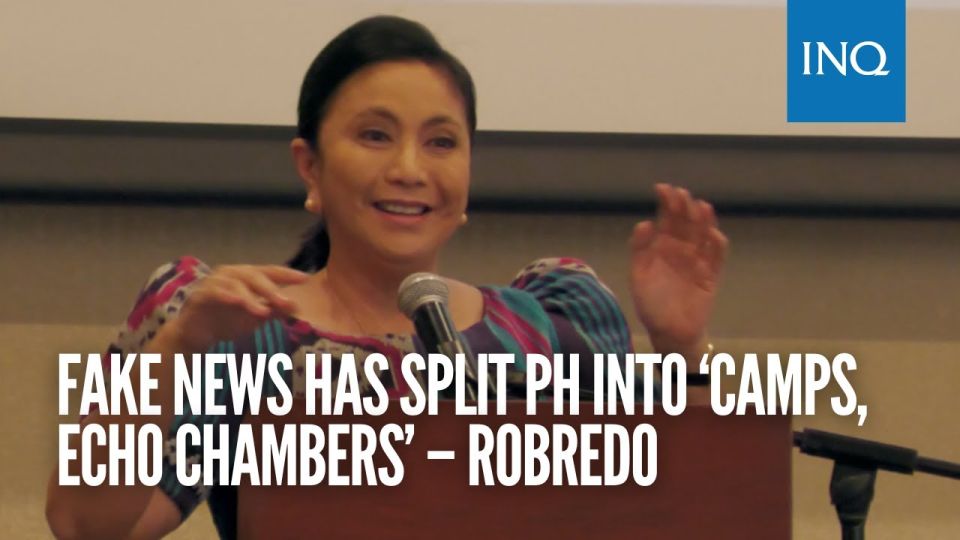November 30, 2022
MANILA — Disinformation has virtually split the Philippines into “multiverses” that have their own versions of realities and “facts,” former Vice President Leni Robredo said on Tuesday, as she urged Filipinos to combat fake news not just through fact-checking but also rebuilding trust among one another.
During her keynote address in a forum hosted by Konrad-Adenauer-Stiftung (KAS) Asia — one of several speaking engagements during a brief return to Manila — Robredo said that segments of society now exist “with their own facts, their own experts, their own narratives of Philippine history and society.”
“We are now a nation split into camps and echo chambers,” she said. “It’s like we live in multiverses [that] have separate histories, truths and beliefs, [and] at the end of it all, an alternate reality is created, one which seems impenetrable and impervious to logic.”
Since stepping down from the vice presidency, Robredo — named in several studies as the No. 1 target of disinformation in the country — vowed to take the lead in the fight against fake news. In the past few months, she had spoken at several Ivy League universities about how disinformation has eroded the Philippines’ democratic institutions and deepened political divides.
This splintering, she said, was due in large part to the “architecture of disinformation networks” seeking to push their own agendas and erode public discourse.
Free data promos
Robredo was referring to a concept coined by disinformation scholars Jonathan Ong and Nicole Curato, whose studies revealed how advertising and PR firms, as well as political operatives, influencers and trolls, all work in concert to seed disinformation and agitate people.
Bias in social media algorithms and even free data promos provided by telecommunications providers have also greatly narrowed Filipinos’ access to diverse streams of information, she added.
In particular, the free data promos that allow Filipinos to access Facebook and TikTok—two platforms that have been flagged for disinformation—essentially narrowed people’s access to more information.
“Free access to social media can seem like a good deal until one realizes, since Facebook is free, sites like Google, or the Inquirer, and the Philippine Star, and other mainstream media outlets which are not available on free data, that regulators have handed over a near-monopoly to these platforms — platforms that have algorithmic bias and can be gamed,” she said.
“Now, whatever it is that’s on free data, that’s their only source of information. They can no longer access more legitimate sources of information,” she added. “That is why the influence of the legitimate media is not the same as before. Trolls, who work for the highest bidders, have the same influence if not more than trained journalists who follow codes of ethics.”
Tide can be turned
Still, Robredo was confident that the tide can be turned “when actions are rooted in accountability and action.”
“If the grand strategy of disinformation actors is to stop us from talking to each other, then countering disinformation should be to talk to each other again,” she said.
More than fact-checking initiatives, she said, people should work on “rebuilding structures that enable meaningful public discourse.”
She also called on social media giants to take responsibility for the networks that thrived under their watch and to come together with civil society groups for solutions.
Ultimately, she said, “we must pull back and situate each lie within the bigger process of disinformation and talk about who is benefiting from disinformation: every story, every lie.”
“Rather than get bogged down engaging in combat with each troll we find, we must focus our efforts upstream and holding architects of disinformation accountable, she added.


